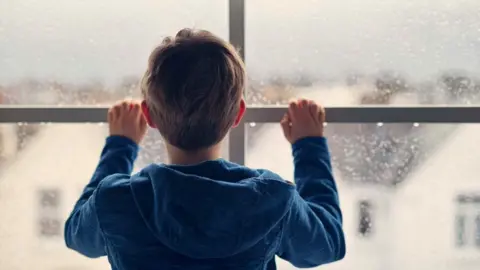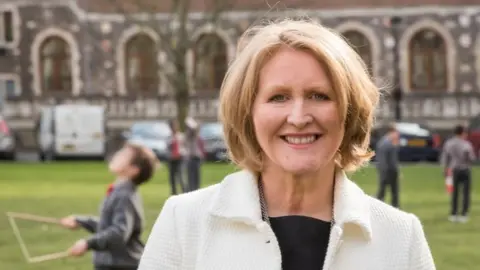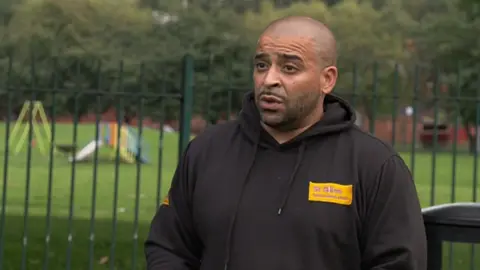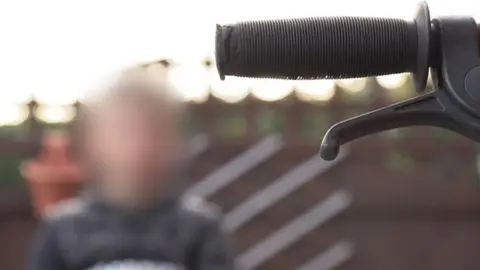Vulnerable children will 'slip out of view', commissioner warns
 Getty Images
Getty ImagesVulnerable children who require urgent support will "slip out of view" because of the impact of coronavirus, England's children's commissioner has warned.
Anne Longfield has called for central investment in youth work to help handle problems exacerbated by lockdown.
An estimated two million children in England live in homes affected by substance abuse, domestic violence or mental health issues.
The government said their safety and wellbeing had always been a priority.
 Office of the Children's Commissioner
Office of the Children's CommissionerWith children having returned to schools across England teachers will begin to identify children who are at risk, leading to an expected increase in referrals to social services, the commissioner told the BBC.
She said: "After the school six-week holidays it's always the case that there are spikes in referrals to social services for children so, after six months, we should expect there to be a really significant increase in the number of children who there are concerns about.
"It will need investment, be it from the police and crime commissioners or indeed from central government to really look at long term, I would say youth work, with these individual children because there's a danger that in five years' time we look back and there's a generation of very vulnerable teens that we let just slip out of view at this time with terrible long term consequences."
Ms Longfield called for further resources to help youth workers engage with young people who may have drifted away from the education system, leaving them at risk of being targeted by criminal gangs.

The St Giles Trust works with teenagers who have been excluded from schools and said it was anticipating a doubling of referrals to its services in the coming weeks.
Carl Morton, who works for the charity, said: "All of a sudden these kids are back out now, so whether it's criminal activity or grooming of gang [members], we're going to see an influx of it.
"It then means we're going to get referrals for these children to work with St Giles."


'I was getting into bother'
Thirteen-year-old Jake (not his real name) had just started at a specialist school in Leeds for children with behavioural problems when lockdown was announced in March.
"[Lockdown] was hard, there was nowt to do really, I was just sat in the same spot all the time, not being able to go out or see all your mates," he said.
"Without St Giles I was getting into bother, I was going out with the wrong people.
"Now that I've met these it's calmed me down. I'm not going out as much as what I was doing, doing bad stuff.
"They've given me a laptop to learn at home on, they give us vouchers for food, gym equipment.
"It's just been easier."

Ms Longfield added: "I want children to be at the forefront of the recovery and get the emotional help and support and the educational support they need to be able to recover and get ahead.
"Otherwise, we'll have a generation of children who will have had difficulties and setbacks during this period that they may take years to get over, if for some they ever do."
In response, a government spokesperson said: "The safety and wellbeing of the most vulnerable children has always been our priority, which is why throughout the pandemic schools, nurseries and colleges remained open to them.
"Our advice for schools is clear that they should continue to identify and report any abuse or harm for children in schools as well as those learning remotely."


- SOCIAL DISTANCING: What are the rules now?
- JOBS: How will I be kept safe at work?
- SUPPORT BUBBLES: What are they and who can be in yours?
- FACE MASKS: When do I need to wear one?
- TESTING: What tests are available?


Follow BBC Yorkshire on Facebook, Twitter and Instagram. Send your story ideas to [email protected] or send video here.
